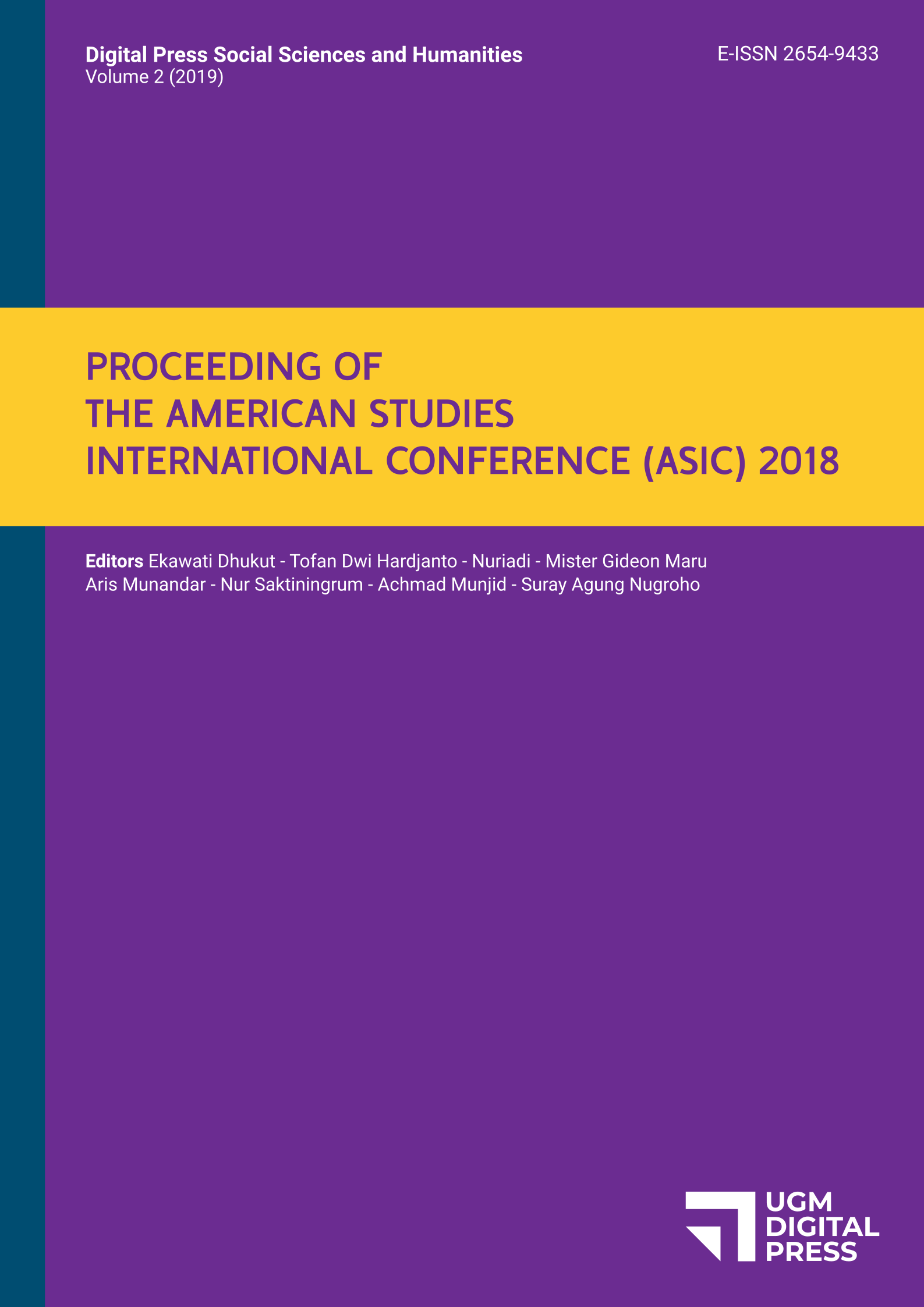Wounds and Words: The Traumatic Memory in Omar El Akkad’s Dystopian Novel
Hasanul Rizqa
Department of Literature, Faculty of Humanities, Universitas Indonesia
hasanul.rizqa@mail.ugm.ac.id
Abstract
This paper discusses the literary portraying of personal trauma in Omar El Akkad’s dystopian novel American War. The purpose of this research is twofold: (1) identify the way in which the traumatic memory of war victims is transmitted from the first generation to next generation and (2) understand how the narrator constructs his discourse about the future of America and the world. The method used in this research is descriptive qualitative. The researcher uses Christa Schönfelder’s theory on postmodern trauma texts. This research shows that the main narrator’s choice to positioning Sarat as a war victim, not a perpetrator of biological genocide, makes the narrative of Sarat’s traumatic memory political. It exposes that the first generation’s desire for personal narration becomes unnaratable, and that there is second/third generation’s urge for a future beyond trauma. The conclusion proves that American War contains the quest for stability out of disruptive experiences, constituting a crucial aspect of the need for narrative in the face of a dystopian future.
Keywords
America, dystopia, postmodern, trauma, war
References
hasanul.rizqa@mail.ugm.ac.id
Abstract
This paper discusses the literary portraying of personal trauma in Omar El Akkad’s dystopian novel American War. The purpose of this research is twofold: (1) identify the way in which the traumatic memory of war victims is transmitted from the first generation to next generation and (2) understand how the narrator constructs his discourse about the future of America and the world. The method used in this research is descriptive qualitative. The researcher uses Christa Schönfelder’s theory on postmodern trauma texts. This research shows that the main narrator’s choice to positioning Sarat as a war victim, not a perpetrator of biological genocide, makes the narrative of Sarat’s traumatic memory political. It exposes that the first generation’s desire for personal narration becomes unnaratable, and that there is second/third generation’s urge for a future beyond trauma. The conclusion proves that American War contains the quest for stability out of disruptive experiences, constituting a crucial aspect of the need for narrative in the face of a dystopian future.

